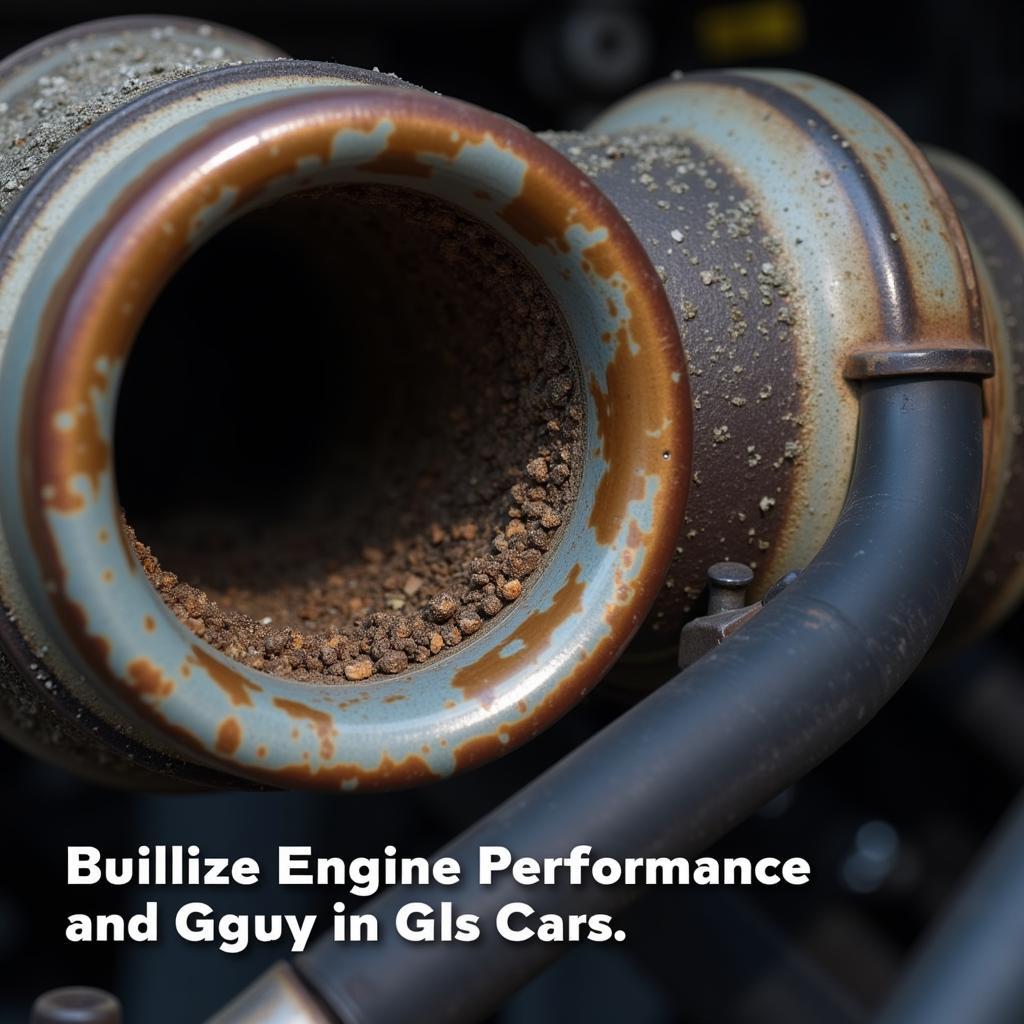Gas cars have been the dominant mode of transportation for decades, and while they offer freedom and convenience, they can also present a range of problems. Understanding these issues and knowing how to address them can save you time, money, and frustration. This article explores common problems with gas cars and offers solutions for troubleshooting and maintenance.
One common issue stems from the fuel itself. Check out our article on ethanol gas problems in cars for more information on this specific concern.
Engine Performance Issues: What’s Going Wrong?
A decrease in engine performance is a frequent complaint among gas car owners. This can manifest as reduced power, sluggish acceleration, rough idling, or poor fuel economy. Several factors can contribute to these problems. Spark plugs, fuel injectors, and air filters play crucial roles in the combustion process. Worn or faulty components can disrupt this process, leading to performance issues. A clogged catalytic converter can also restrict exhaust flow, impacting engine performance.
 Clogged Catalytic Converter Causing Engine Problems
Clogged Catalytic Converter Causing Engine Problems
Starting Problems: Why Won’t My Car Start?
Starting problems are another common headache for gas car owners. A dead battery is often the culprit, but other issues can prevent the engine from turning over. A faulty starter motor, a bad ignition switch, or problems with the fuel system can all lead to starting difficulties. Furthermore, extreme cold can thicken engine oil and make it harder for the engine to crank, exacerbating starting problems in winter.
Overheating: Keeping Your Cool
Overheating can cause severe engine damage if not addressed promptly. A low coolant level, a faulty thermostat, or a malfunctioning radiator fan can lead to overheating. Leaks in the cooling system can also cause the coolant level to drop dangerously low. Regularly checking the coolant level and inspecting the cooling system for leaks are essential preventive measures.
If you are interested in finding vehicles with known head gasket issues, you can explore our resource on [cars with head gasket problems for sale](https://autotippro.com/cars-with-head gasket-problems-for-sale/).
Fuel System Troubles: From Tank to Engine
Problems with the fuel system can manifest in various ways, from poor fuel economy to complete engine failure. A clogged fuel filter can restrict fuel flow, starving the engine of fuel. A malfunctioning fuel pump can fail to deliver sufficient fuel pressure, leading to performance issues. Fuel injectors can become clogged, disrupting the precise delivery of fuel into the combustion chamber.
Do you suspect a head gasket issue? Read more about common cars that have head gasket problems.
Exhaust System Issues: More Than Just Noise
The exhaust system does more than just muffle engine noise. It also plays a crucial role in emissions control. A leaking exhaust system can release harmful pollutants into the atmosphere. A clogged catalytic converter can restrict exhaust flow, impacting engine performance and increasing emissions. Regular inspections of the exhaust system are essential to ensure its proper functioning.
“Regular maintenance is key to preventing many common problems with gas cars,” says John Smith, a seasoned automotive technician with over 20 years of experience. “Simple checks like monitoring fluid levels, inspecting belts and hoses, and changing the air filter can go a long way in keeping your car running smoothly.”
Conclusion: Staying Ahead of the Curve
Problems with gas cars are inevitable, but understanding the common issues and taking proactive steps for maintenance can help you minimize downtime and costly repairs. Regular maintenance, coupled with prompt attention to any warning signs, can significantly extend the life of your gas car and ensure a smooth and reliable driving experience. Don’t hesitate to contact AutoTipPro at +1 (641) 206-8880 or visit our office at 500 N St Mary’s St, San Antonio, TX 78205, United States for any assistance or further inquiries.
“Addressing problems early is crucial,” adds Maria Garcia, a leading automotive engineer. “Ignoring small issues can lead to more significant and expensive problems down the road.”
Are you curious about the impact of old gasoline? Learn more about the 1 year old gas a problem for cars. Addressing fuel concerns promptly can help avoid potential issues.
“A well-maintained gas car offers reliable performance and peace of mind,” concludes David Wilson, an automotive expert with over 30 years of experience in the field. He emphasizes the importance of proactive maintenance in preventing common car problems.
FAQs:
-
What are some signs of a failing fuel pump? Sputtering at high speeds, difficulty starting, and a whining noise from the fuel tank are potential indicators.
-
How often should I change my air filter? Generally, every 12,000 to 15,000 miles, but check your owner’s manual for specific recommendations.
-
What causes a car to overheat? Low coolant, a faulty thermostat, a malfunctioning radiator fan, or leaks in the cooling system.
-
Why is my car losing power? Possible causes include worn spark plugs, clogged fuel injectors, a dirty air filter, or a faulty catalytic converter.
-
What should I do if my car won’t start? Check the battery, starter motor, ignition switch, and fuel system.
-
How can I prevent problems with my gas car? Regular maintenance, including fluid checks, inspections, and timely part replacements, is crucial.
-
What are the common problems gasoline cars cause us? You can explore this topic further in our dedicated article: problems that gasoline cars cause us.






Leave a Reply